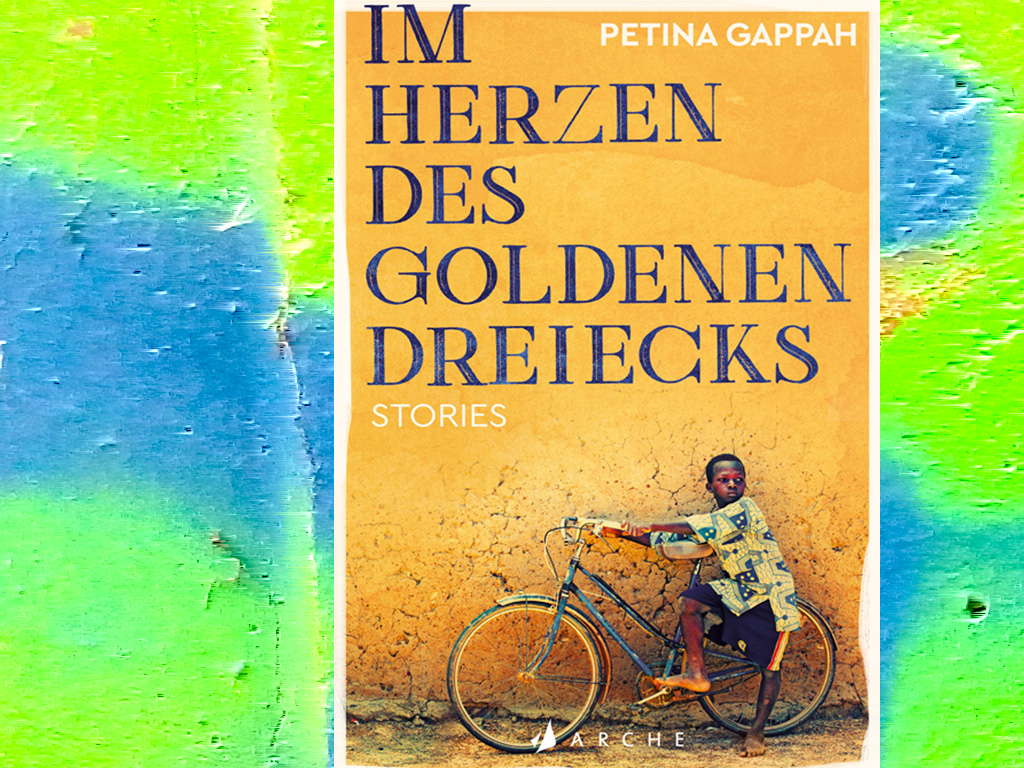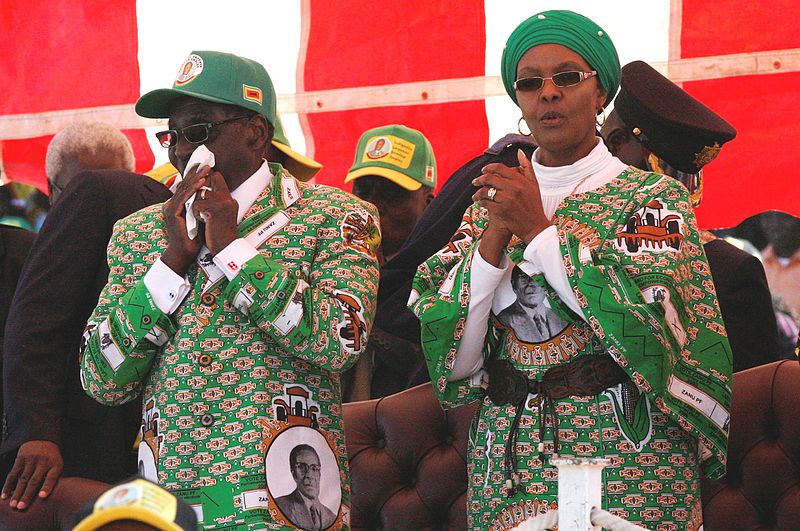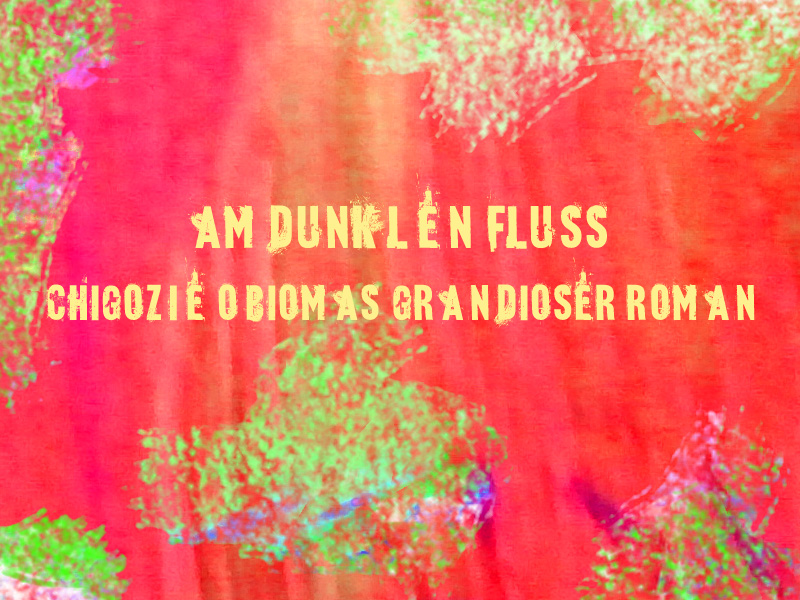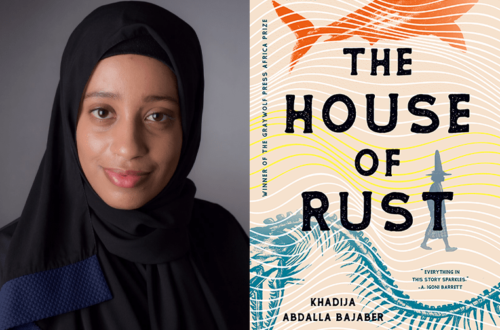
Im Herzen des goldenen Dreiecks – Zimbabwe Short Stories / Petina Gappah ger/engl
Die Stories aus dem Herzen des Chaos, der politisch letzten Phase des Präsidenten Robert Mugabe, sind auch zehn Jahre später noch absolut lesenswert.
for english version please scroll down

Im Herzen des Goldenen Dreiecks
Arche Verlag
Das Buch
Im neu erschienen Buch aus dem Arche Verlag versammeln sich Stories, die schon 2009 auf Englisch erschienen sind. Mit ihrem wachsenden Erfolg (“Aus der Dunkelheit strahlendes Licht” bei S. Fischer) sind diese Stories nun zum ersten Mal auf Deutsch erschienen. Kalter Kaffee? Mitnahmeeffekt? Mitnichten! Die Stories aus dem Herzen des Chaos, der politisch letzten Phase des Präsidenten Robert Mugabe, sind auch zehn Jahre später noch absolut lesenswert. Das liegt natürlich in erster Linie an Petina Gappah, die eine wahrhaft meisterliche Erzählerin ist. Mit viel Witz, vielen skurrilen Details, vorallem aber einer Liebe zu den Menschen, die sich mit ihrem Leben herumschlagen, das viel angenehmer sein könnte, als jetzt ist. In Simbabwe oder Nyika yeZimbabwe wie auf Shona heisst, der am weitesten verbreiteten Volksgruppe und Sprache.
Wäre da also nicht ein Staat, der sich nach der Jahrtausendwende politisch und wirtschaftlich ins Aus geschossen hat. Das wiegt in Simbabwe besonders schwer, galt das Land doch Jahrzehntelang als Vorbild für viele afrikanische Staaten. Als Vorbild für die Überwindung von Kolonialismus, Apartheid und Abhängigkeit von Europa. Der Stolz der Simbabwerinnen und Simbabwern ist gespeist von einer langen kulturellen Tradition. Groß Simbabwe ist immerhin die eindruckvollste Stätte einer vorkolonialen Hochkultur im südlichen Afrika. Einer großartigen Kulturleistung, von der später die Kolonialherren sagen sollten, dass dies unmöglich von Afrikanern erschaffen werden konnte. Stolz sind sie auch auf die selbst erkämpfte Freiheit durch Robert Mugabes Truppen, dem Sieg über die Rassisten im früheren Rhodesien. Aber natürlich auch von der jahrelangen wirtschaftlichen Prosperität, die vielen Menschen in Simbabwe ein gutes Leben bescheren konnte, deren Entwicklung stets nach oben ging.
Umso schmerzhafter ist der Abstieg Simbabwes in das Armenhaus Afrikas. Immer noch rangiert Simbabwe aktuell auf dem BIP Nationen Index auf Rang 150 von 189 Ländern. Eine marode Infrastruktur, schlechte Ernten, Hyperinflation, ein Aderlass an vielen Fachkräften, die ihr Glück in anderen Teilen der Welt suchen. Über allem schwebt bei Entstehung des Buchs noch der alternde Präsident des Landes, der frühere Freiheitsheld Robert Mugabe. Die abgedroschen Kampfparolen zünden nicht mehr. Die Schuldzuweisungen an die weißen Siedler und Großbritannien, sie sorgen für Unmut und kurzfristigen, gewalttätigen Aktionen. Sie stellen aber das Grunddilemma nicht ab: Mangelnde Freiheit, Hoffnung und durchdachte Wirtschaftspolitik.

Die Stories
Von all diesen Themen handeln die dreizehn Stories von Petina Gappah. Und auch nicht. Denn wer politische Grabenkämpfe, Siedlerdrama und einen Abgesang auf Mugabe erwartet, wird mit diesen Stories nicht bedient.
Stattdessen skizziert Petina Gappah eine sehr menschliche Analyse dieses Landes. Sie spart nicht mit Spott wenn sie gleich in der ersten Story von der Beerdigung eines ranghohen Militärs erzählt. Aus der Sicht der Witwe allerdings. Die hat, anders als der prominente Grabredner, Präsident Mugabe selbst, die Doppelmoral ihres Mannes hautnah mit erdulden müssen. Mehrfach hat er sie mit andren Frauen hintergangen. Während Mugabe eine nicht enden wollende Rede hält, sinniert die hoch gebildete Witwe über den Zustand ihrer vergangenen Ehe und des Staates. Es wird genau beschrieben, wie diese Feier abgehalten wird. Bei der alles stimmen soll. Beerdigungen werden immer mehr zum Symbolakt des Staates.
Im Sarg wird übrigens, so erfahren wir, ein Stück Holz begraben, weil ihr Mann im Geburtsort begraben werden wollte. Doch die Anweisung des Präsidenten, er müsse ein Staatsbegräbnis auf dem Heldenfriedhof bekommen, konnte auch nicht widersprochen werden. So wird ein Handel besiegelt, die Witwe willigt ein, bekommt für ihr Stillschweigen einen Senatsposten und die Farm des Mannes:
“Nur diese Wahrheit wird in die Geschichtsbücher eingehen und den Kindern gelehrt werden… Mein Mann ist ein Nationalheld, der in Warren Hills bestattet wurde. Warren Hills ist die Nationale Gedenkstätten in einem Land, das vom weisesten aller Präsidenten regiert wird. In diesem Land herrscht Wohlstand, seine Bürger sind alle glücklich…Und ich werde in diesem Land zur neuen Farmbesitzerin und Senatorin.”

Die Stories handeln nicht nur in den Sphären der Oberschicht. Wir werden mit genommen in Wohnviertel der ärmeren Bewohner, die mit der Armut genauso wie mit dem Aberglauben kämpfen, deren Zuhause am Ende, wie ihr ganzes Viertel, abgerissen wird. So sollen die Probleme der Armut nach Mugabes Stil gelöst werden.
Wir sind dabei, wenn die Mupandawan Dancing Championships ihren Lauf nehmen. Folgen dabei einem alles in den Schatten stellenden, akrobatisch tanzenden Sargtischler, der, man ahnt es, in einem tragischen Ende gipfelt. Wir leiden mit einem in Europa arbeitenden Simbabwer, der auf die falschen Versprechungen eines Millionengewinns hereinfällt und dabei ist seine ganze Zukunft zu verspielen. Verfolgen die nicht um Ausreden verlegene Schwester-Cousine Rambanai, die mit zwei Koffern aus den verheißungsvollen USA zurückkehrt, dahin zurück will, aber den falschen Vermerk im Pass hat. Lange drückt sie sich vor der Wahrheit, vor dem Misserfolg, was ihr ein Leben in der Heimat unmöglich macht. Nicht erfolgreiche Repatriots sind nicht gerne gesehen in einem Land, das die Flucht in die reichen Industriestaaten als Verheißung ansieht. Die Problemlösung für Rambanai hat mit Geld zu tun. Mit viel Geld, denn in Simbabwe ist fast Jeder und Jede MilliardärIn:
“Ihr Simbabwe war im Jahr 1997 erstarrt, dem Jahr ihres Weggangs. Ihr Land war eins gewesen, wo man das Geld mit vollen Händen ausgab, rasante Studenten rasend schnelle Autos fuhren und eine Party auf die nächste folgte, ein Simbabwe ohne Inflation im zweistelligenBereich, ohne Gerüchte über unfaire Wahlen.”
Fazit
All diese Geschichten vermitteln tiefe Einblicke in ein Land, dessen Bewohner sich mit Missständen arrangieren, die dennoch nicht die Lebenslust verlieren. Das sind sehr gut beobachtete, gut recherchierte Stories. Direkt aus dem Leben, manchmal zu gut um nicht real zu sein. Aber Petina Gappah spart nicht an Kritik. Sie ist anders verpackt, mal satirisch, mal abgründig, mal spöttisch, nie destruktiv. Das macht es dem Leser so einfach, sich auf diese Geschichten einzulassen.
Mit ihrem süffisant ironischen, immer auch warmen und bildreichen Erzählstil bringt sie uns ihr Heimatland und die Menschen sehr nahe. Als Leser ist man erstaunt, wie eine junge Autorin (das ist ihr Debut) so viel unterschiedliche Menschen, Lebenslagen und Gesellschaftsschichten analysieren und präzise beschreiben kann. Die feine Ironie ihrer Sprache ist ein Vergnügen, denn es wäre ein leichtes, angesichts der damaligen Verhältnisse, den Holzhammer rauszuholen. Nein sie tut es nicht. Und das ist die eigentliche Leistung: eine eigene Sprache zu finden, die für die Leserinnen und Leser eine Balance findet, mit den teils aberwitzigen teils skurilen aber auch tragischen Geschichten mit zu gehen. Es ist diese Liebe zu ihrem Land und die Hingabe, mit der sie Kritik am maroden Einparteiensystem übt.
Simbabwe befindet sich nach dem Tod von Mugabe 2018 zwar im Tranformationsprozess. Dennoch sind die speziellen Strukturen des überkommenen Regimes auch heute noch überall sichtbar.
Deswegen sind die Stories auch garnicht überholt. Es ist: Eine Reise in ein marodes Land – und das tapfere Arrangement der Bewohner und Bewohnerinnen. Glänzend erzählt von Simbabwes großer Erzählerin Petina Gappah.
 Hans Hofele for cultureafrica.net 2020
Hans Hofele for cultureafrica.net 2020

Im Herzen des goldenen Dreiecks – Stories
Von Petina Gappah
Übersetzt von Patricia Klobusiczky, Arche Verlag Zürich, 269 Seiten, Taschenbuch, 12€
Über die Autorin:
Petina Gappah wurde 1971 in Rhodesien (dem heutigen Simbabwe) geboren. Im Herzen des goldenen Dreiecks ist ihre erste Buchveröffentlichung. Die studierte Juristin und Anwältin arbeitet heute in Genf und berät ihr Land in Handelsrecht. Auf Deutsch erschienen (S.Fischer) ist dieses Jahr der große Roman Aus der Dunkelheit strahlendes Licht über die letzte Reise David Livingstons (siehe Rezension auf cultureafrica.net).

ENGLISH VERSION
The book
The newly published book from Arche Verlag brings together stories that were already published in English in 2009. With their growing success (“Aus der Dunkelheit strahlendes Licht” by S. Fischer), these stories have now appeared in German for the first time. Cold coffee? Deadweight? Not at all! The stories from the heart of chaos, the last political phase of President Robert Mugabe, are still absolutely worth reading ten years later. Of course, this is primarily due to Petina Gappah, who is a truly masterful storyteller. With a lot of wit, many bizarre details, but above all a love for the people who struggle with their lives, which could be much more pleasant than they are now. In Zimbabwe, or Nyika yeZimbabwe as it is called in Shona, the most widespread ethnic group and language.
If it weren’t for the fact that after the turn of the millennium, the country shot itself into the ground politically and economically. This is particularly serious in Zimbabwe, which for decades was considered a role model for many African states. As a model for overcoming colonialism, apartheid and dependence on Europe. The pride of Zimbabweans is fed by a long cultural tradition. Greater Zimbabwe is, after all, the most impressive site of a pre-colonial advanced civilisation in southern Africa. A great cultural achievement of which the colonial masters were later to say that it could not possibly have been created by Africans. They are also proud of the freedom they won themselves through Robert Mugabe’s troops, the victory over the racists in the former Rhodesia. But of course they are also proud of the many years of economic prosperity that provided a good life for many people in Zimbabwe, whose development always went upwards.
This makes Zimbabwe’s descent into the poorhouse of Africa all the more painful. Zimbabwe still ranks 150th out of 189 countries on the GDP Nations Index. A dilapidated infrastructure, poor harvests, hyperinflation, a bloodletting of many skilled workers seeking their fortune in other parts of the world. Still hovering over everything at the time of writing is the country’s ageing president, the former freedom hero Robert Mugabe. The hackneyed fighting slogans are no longer effective. Blaming the white settlers and Britain, they cause resentment and short-term, violent actions. But they do not remove the basic dilemma: lack of freedom, hope and well thought-out economic policies.

The Stories
Petina Gappah’s thirteen stories are about all these issues. And they are not. For those expecting political trench warfare, settler drama and a swan song for Mugabe will not be served by these stories.
Instead, Petina Gappah sketches a very human analysis of this country. She does not spare mockery when she tells of the funeral of a high-ranking military officer in the very first story. From the point of view of the widow, however. Unlike the prominent funeral orator, President Mugabe himself, she has had to endure her husband’s double standards at first hand. Several times he cheated on her with other women. While Mugabe delivers a never-ending speech, the highly educated widow ponders the state of her past marriage and the state. It is described in detail how this celebration is held. Where everything is supposed to be right. Funerals are increasingly becoming a symbolic act of the state.
Incidentally, we learn that a piece of wood is buried in the coffin because her husband wanted to be buried in his birthplace. But the president’s instruction that he must have a state funeral in the heroes’ cemetery could not be contradicted either. So a deal is sealed, the widow agrees, gets a senate post and the man’s farm for her silence:
“Only this truth will go down in the history books and be taught to the children…. My husband is a national hero buried at Warren Hills. Warren Hills is the National Memorial in a country ruled by the wisest of presidents. In this country there is prosperity, its citizens are all happy…And I am becoming the new farm owner and senator in this country.”
The stories are not only about the upper classes. We are taken into neighbourhoods of the poorer residents who struggle with poverty as much as superstition, whose homes end up being demolished like their whole neighbourhood. This is how the problems of poverty are to be solved, Mugabe style.
We are there when the Mupandawan Dancing Championships take place. We follow an acrobatic coffin dancer who outshines everything else, culminating in, you guessed it, a tragic end. We suffer with a Zimbabwean working in Europe who falls for the false promises of a million-dollar profit and is about to gamble away his entire future. We follow the sister-cousin Rambanai, who is not at a loss for excuses, who returns from the promising USA with two suitcases, wants to go back there, but has the wrong entry in her passport. For a long time, she shirks the truth, the failure, which makes a life back home impossible for her. Unsuccessful repatriots are not welcome in a country that sees flight to the rich industrialised countries as a promise. The solution to Rambanai’s problem has to do with money. A lot of money, because in Zimbabwe almost everyone is a billionaire:
“Their Zimbabwe was frozen in 1997, the year they left. Her country had been one where money was spent with full hands, fast students drove fast cars and one party followed another, a Zimbabwe without double-digit inflation, without rumours of unfair elections.”

Arche verlag
Conclusion
All these stories provide deep insights into a country whose inhabitants come to terms with grievances, yet do not lose their zest for life. These are very well observed, well researched stories. Straight from life, sometimes too good not to be real. But Petina Gappah does not spare criticism. It is packaged differently, sometimes satirical, sometimes abysmal, sometimes mocking, never destructive. That is what makes it so easy for the reader to engage with these stories.
With her smugly ironic narrative style, which is always warm and rich in imagery, she brings us very close to her home country and its people. As a reader, one is amazed at how a young author (this is her debut) can analyse and precisely describe so many different people, life situations and social classes. The subtle irony of her language is a pleasure, because it would be easy, given the circumstances of the time, to bring out the sledgehammer. No she doesn’t. And that is the real achievement: to find a language of her own that finds a balance for the reader to go along with the sometimes hilarious, sometimes bizarre, but also tragic stories. It is this love for her country and the dedication with which she criticises the ailing one-party system.
Zimbabwe is indeed in the process of transformation after the death of Mugabe in 2018. Nevertheless, the special structures of the outdated regime are still visible everywhere.
That is why the stories are not at all outdated. It is: a journey into an ailing country – and the brave arrangement of its inhabitants. Brilliantly narrated by Zimbabwe’s great storyteller Petina Gappah.
Hans Hofele





